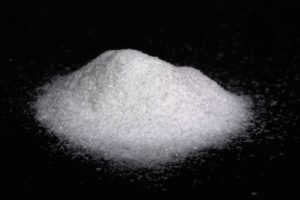 Artificial sweeteners are very popular, with sucralose (Splenda) being the most widely used artificial sweetener in the US. However, there is increasing evidence that these sweeteners are linked to health problems. Recently, a study found that basically all safety claims by the manufacturer of sucralose are nonsense (deceptive advertising!), and that the sweetener instead can cause health harms.
Artificial sweeteners are very popular, with sucralose (Splenda) being the most widely used artificial sweetener in the US. However, there is increasing evidence that these sweeteners are linked to health problems. Recently, a study found that basically all safety claims by the manufacturer of sucralose are nonsense (deceptive advertising!), and that the sweetener instead can cause health harms.
Health harms from sucralose include: damages DNA (it's genotoxic), it causes "leaky gut" (makes the wall of the gut more permeable), bioaccumulates in the body, leukemia, alters gut microbes, drives glucose intolerance, causes weight gain, increases appetite. decreases insulin sensitivity, metabolic dysfunction, enters into breastmilk of nursing mothers, promotes intestinal inflammation, and more.
Of course the European Union has stricter standards regarding sucralose than the US. (Why am I not surprised?).
The following two articles discuss different aspects of sucralose and its health harms. The one from US Right to Know is worth reading in full.
Excerpts from Medical Xpress: Chemical found in common sweetener damages DNA
A new study finds a chemical formed when we digest a widely used sweetener is "genotoxic," meaning it breaks up DNA. The chemical is also found in trace amounts in the sweetener itself, and the finding raises questions about how the sweetener may contribute to health problems.
At issue is sucralose, a widely used artificial sweetener sold under the trade name Splenda. Previous work by the same research team established that several fat-soluble compounds are produced in the gut after sucralose ingestion. One of these compounds is sucralose-6-acetate.
"To put this in context, the European Food Safety Authority has a threshold of toxicological concern for all genotoxic substances of 0.15 micrograms per person per day," Schiffman says. "Our work suggests that the trace amounts of sucralose-6-acetate in a single, daily sucralose-sweetened drink exceed that threshold. And that's not even accounting for the amount of sucralose-6-acetate produced as metabolites after people consume sucralose."
For the study, researchers conducted a series of in vitro experiments exposing human blood cells to sucralose-6-acetate and monitoring for markers of genotoxicity. "In short, we found that sucralose-6-acetate is genotoxic, and that it effectively broke up DNA in cells that were exposed to the chemical," Schiffman says.
"Other studies have found that sucralose can adversely affect gut health, so we wanted to see what might be happening there," Schiffman says. "When we exposed sucralose and sucralose-6-acetate to gut epithelial tissues—the tissue that lines your gut wall—we found that both chemicals cause 'leaky gut.' Basically, they make the wall of the gut more permeable. The chemicals damage the 'tight junctions,' or interfaces, where cells in the gut wall connect to each other.
"A leaky gut is problematic, because it means that things that would normally be flushed out of the body in feces are instead leaking out of the gut and being absorbed into the bloodstream."
A few excerpts from a well-written article in USRTK (US Right to Know): Sucralose: Emerging science reveals health risks
Sucralose is the most widely used artificial sweetener in the United States. Most commonly sold under the brand name Splenda, the chemical is used in over 6,000 food products. It is often found in “diet” sodas including Diet Coke with Splenda, Diet Pepsi with Splenda, as well as Gatorade’s Propel Water, low-calorie Kool-Aid, Atkins Diet products, and other low-calorie foods and drinks.
Sucralose is 600 times sweeter than sugar and itself contains no calories. Although it has been marketed as a healthy product that can help fend off obesity and diabetes, sucralose consumption has been linked to leukemia, weight gain, obesity, diabetes, liver inflammation, metabolic dysfunction and other illnesses.
Sucralose backers have also claimed it is poorly absorbed and does not significantly bioaccumulate in the human body. However, a 2018 study found that sucralose metabolizes and bioaccumulates in rats. Based on this recent science, U.S. Right to Know petitioned the Federal Trade Commission to investigate deceptive advertising claims by Tate & Lyle and Coca-Cola.
Key Facts About sucralose
-
- In May 2023, the World Health Organization advised people not to consume non-sugar sweeteners, including sucralose, for weight loss.The recommendation is based on a systematic review of the most current scientific evidence, which suggests that consumption of non-sugar sweeteners is associated with increased risk of type 2 diabetes, cardiovascular diseases and all-cause mortality, as well as increased body weight.
- The Food and Drug Administration approved sucralose for use in 1998 in 15 food categories, and a year later approved it as a general purpose sweetener. It was the fastest shift in FDA’s history from a specified usage to general purpose approval of an artificial sweetener.
- Of the over 100 studies FDA reviewed at the time, none involved humans, only three lasted more than a year, and many of them were not even published for public scrutiny.
- Subsequent studies, including longitudinal ones involving human populations, have linked sucralose to a range of health problems. FDA has not reevaluated its authorization with the current science.
